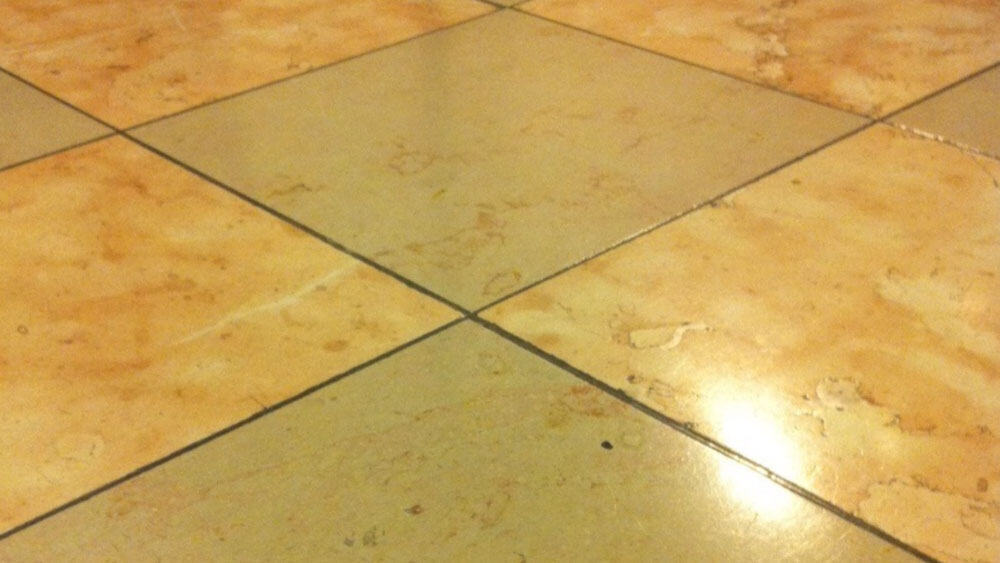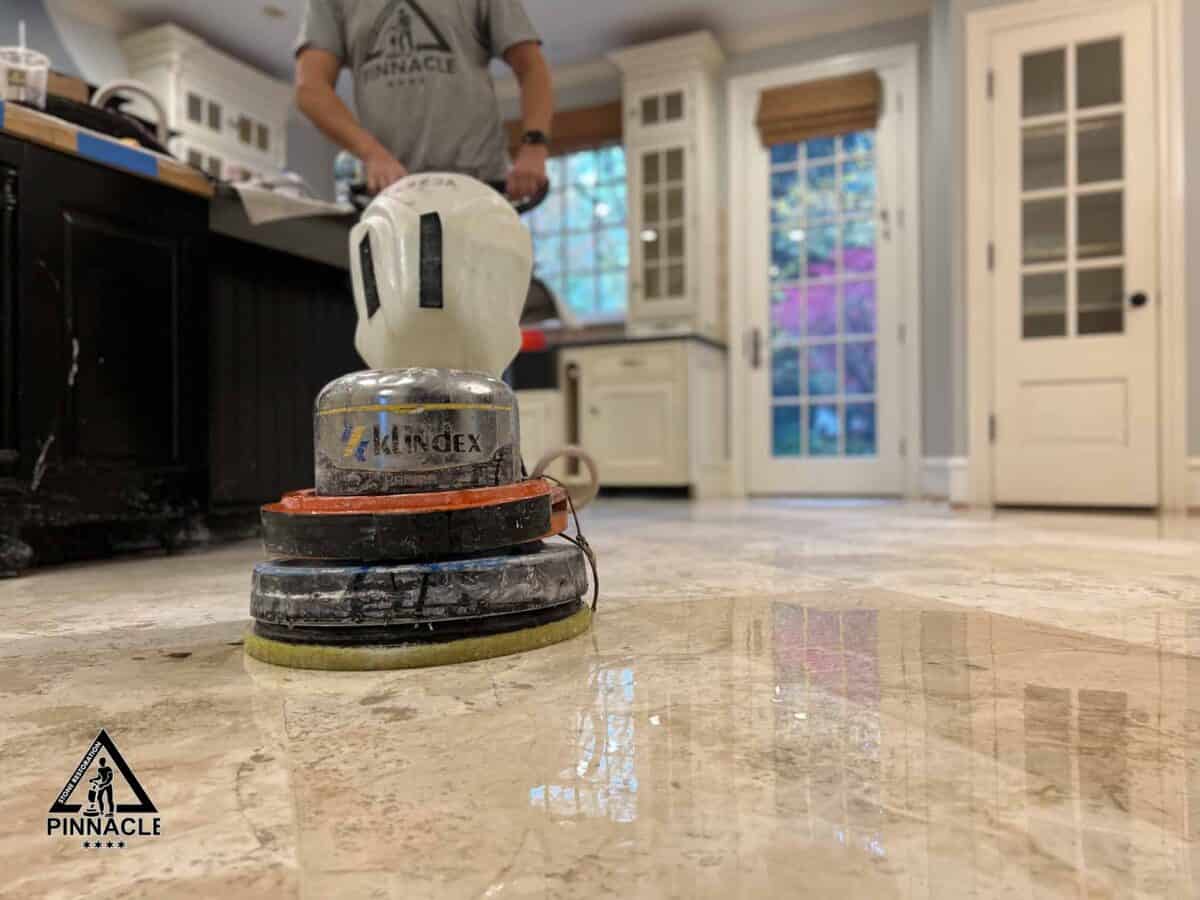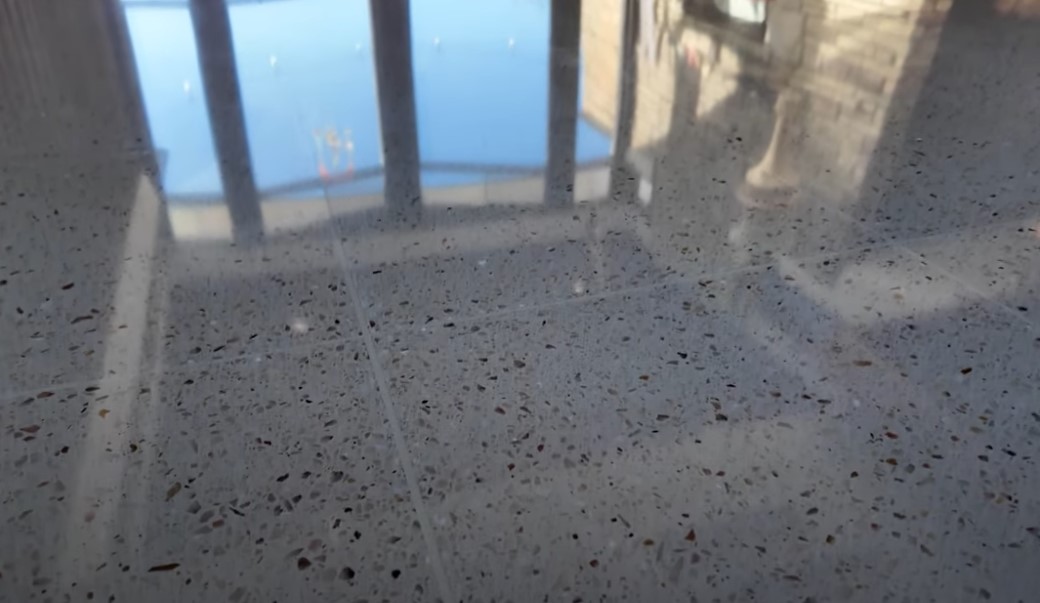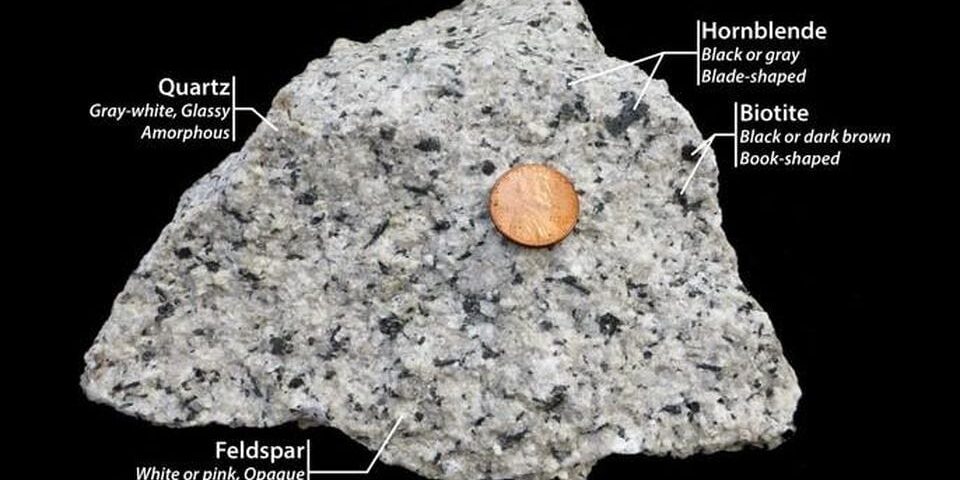
Granite Countertops Vs Quartz (Pros And Cons)
Granite has been a champion of countertops for quite a while, although now people consider the choice of quartz vs granite countertop more often. In this blog we discuss the Pros and Cons of these two most controversial countertop materials.
If you are debating on which one you really want and need, the following information might help you in this important decision making.
In this blog we will underline the differences, highlight the benefits and drawbacks of granite countertops vs quartz. At the end of this blog you will see a sorted list of pros and cons of granite vs quartz as a material for countertops.
Origins of granite and quartz
Granite is a 100 % natural stone. Granite is an igneous rock made up of primarily quartz, feldspar, micas, amphiboles, and a mixture of additional trace minerals.
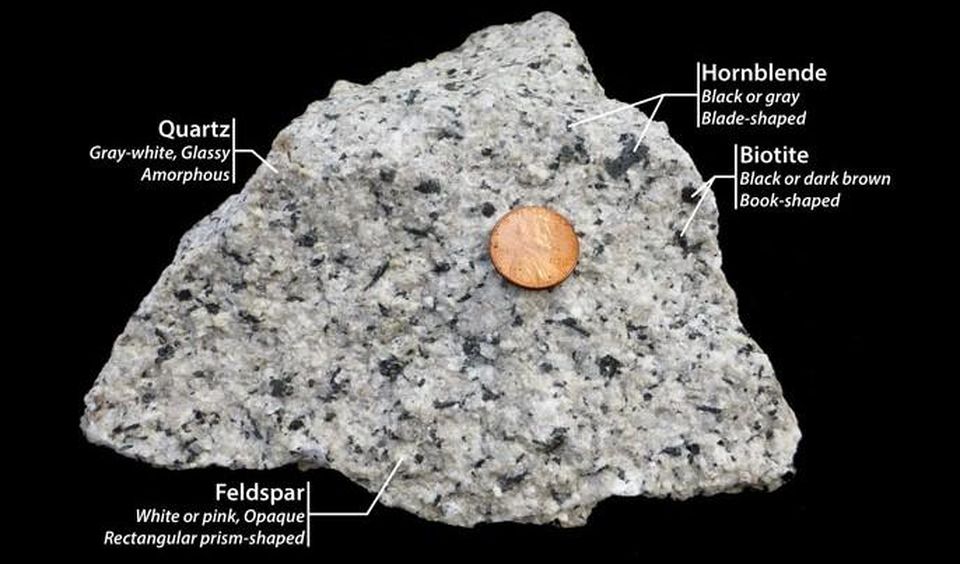
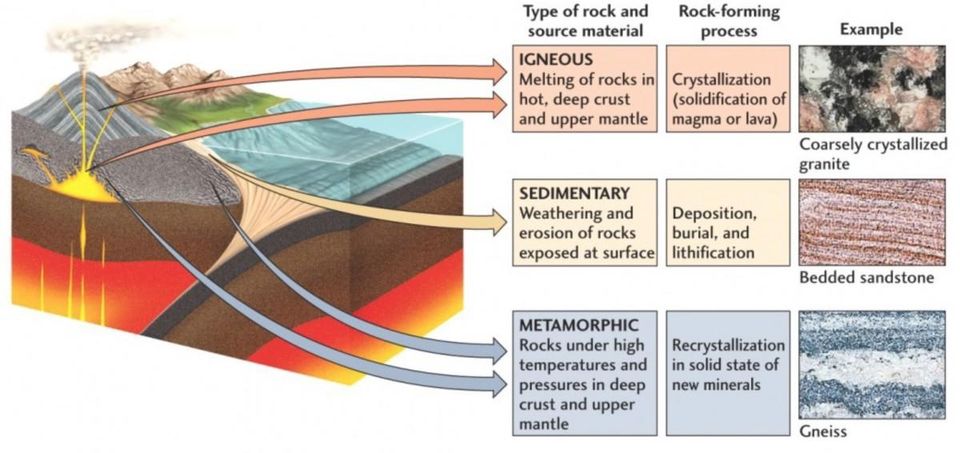
Quartz is a completely different story. It is man-made/engineered product consisting mainly of 93% ground natural quartz and 7% resin binder and color additives.
Design
Countertop design is strictly a personal choice. Quartz countertops has a wide variety of colors and patterns, although granite has its unique natural earthy aspect to it.
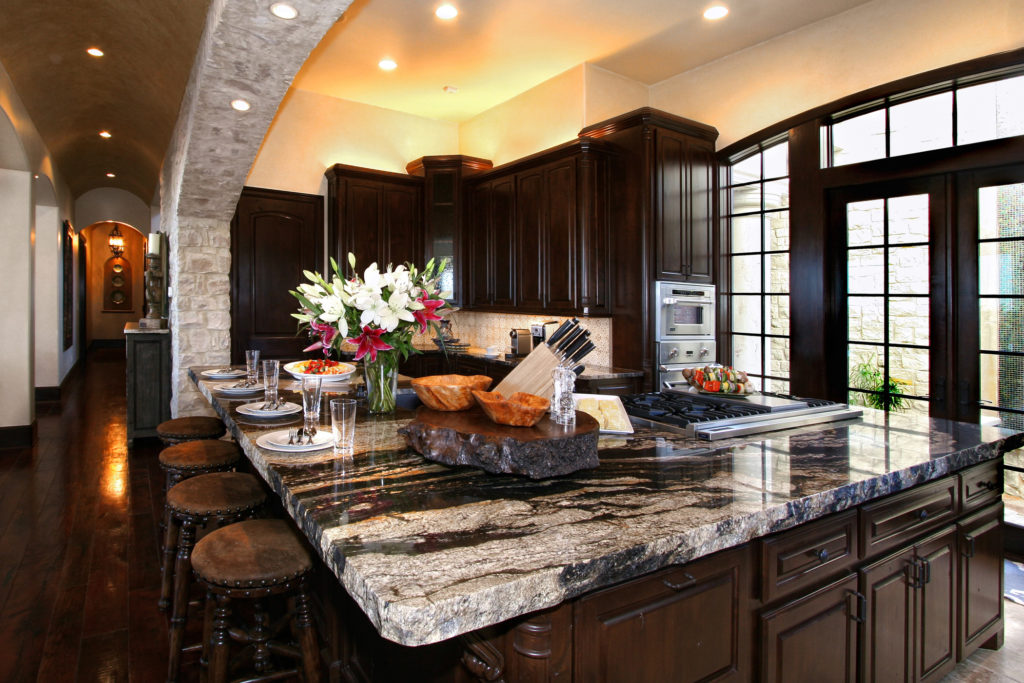
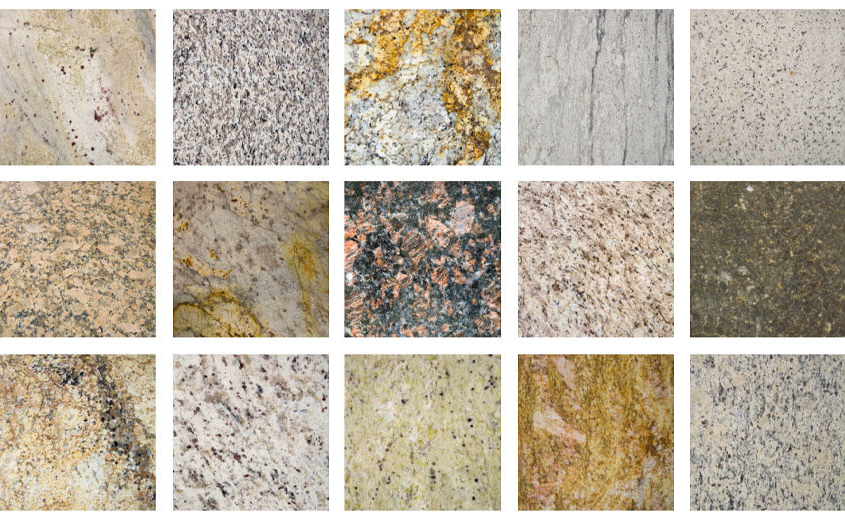
When choosing your countertop from samples in the store the difference of granite small sample and actual slab may be surprising.
Quartz samples are easier to choose from since quartz countertops have more uniformed design.
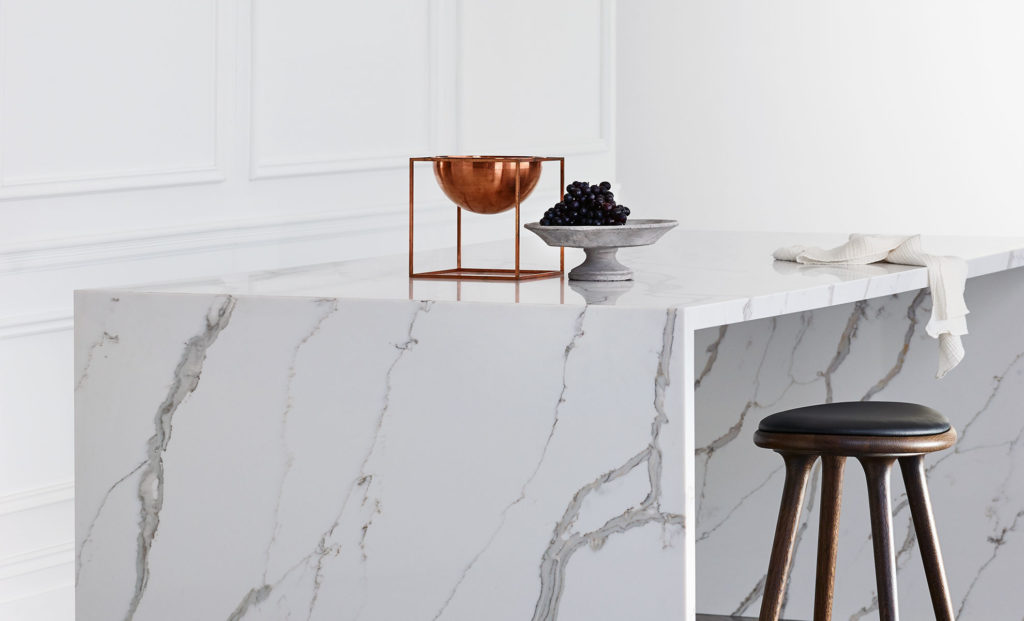
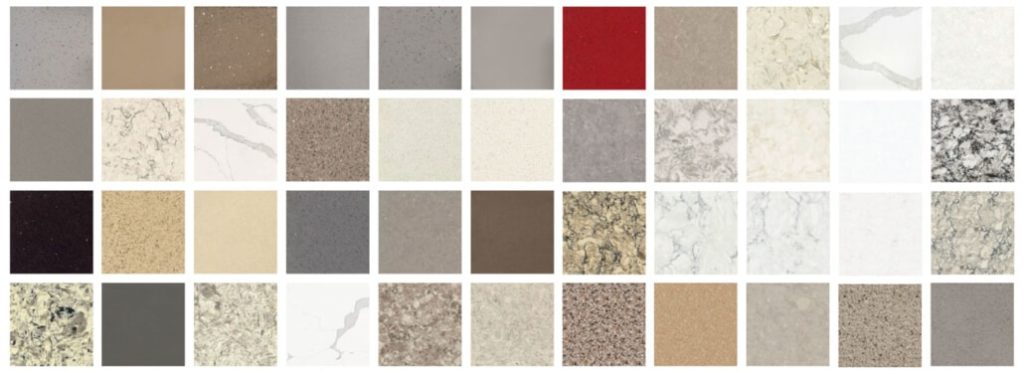
For a traditional unique look or exotic natural veining, granite is what a lot of people go with. If you prefer more contemporary, extremely modern feel, or more solid color choices, you might what to consider a quartz countertop.
You can never go wrong if you choose either of them, they are both gorgeous stones. All depends on your preference.
Cost of granite countertops vs quartz
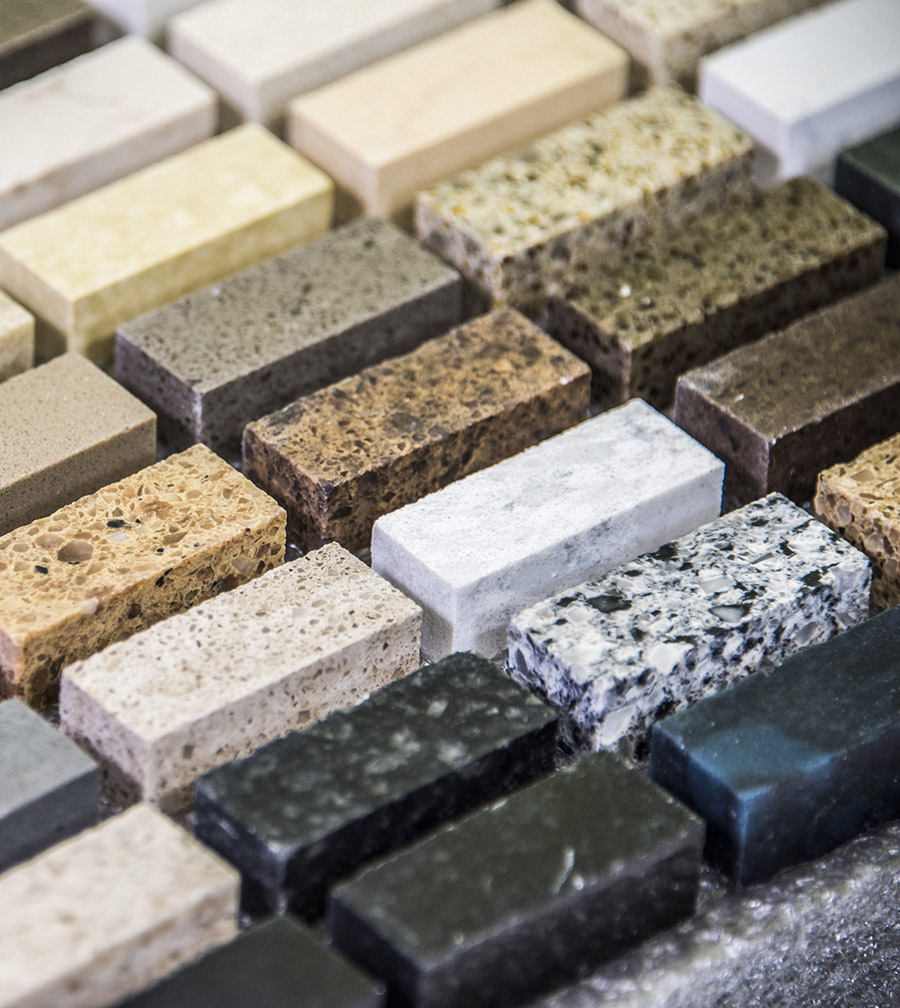
Both granite countertops and quartz are premium products. Sometimes price difference can be very minimal depending on the grade of the product.
Generally, granite is cheaper while quartz being on slightly more expensive range. Entry level granite, depending on the region you live in, can start at $35-$45 per sq. ft. Quartz can start at around $60 per sq. ft.
Quartz does not get more expansive than $120-$130 per sq. ft. Price depends on how much man work was put into product and the type of material.
Granite can get really expensive, up to $200+ per sq. ft. for some rare exotic kinds of granite.
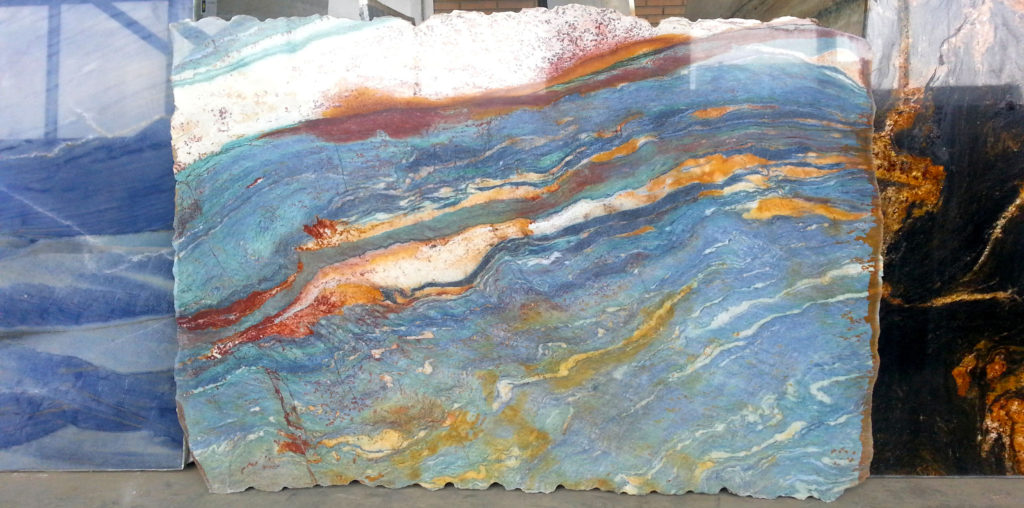
Granite is priced in levels (1,2,3, and up from there). Some granite stores will have it as A, B, C, D etc. Same concept, where A is the lowest cost granite and they become more expensive as you go up the line.
Quality of granite does not depend on the price. It is like a semi-precious stone, the rarer it is the more expensive it becomes.
Slab size of granite and quartz
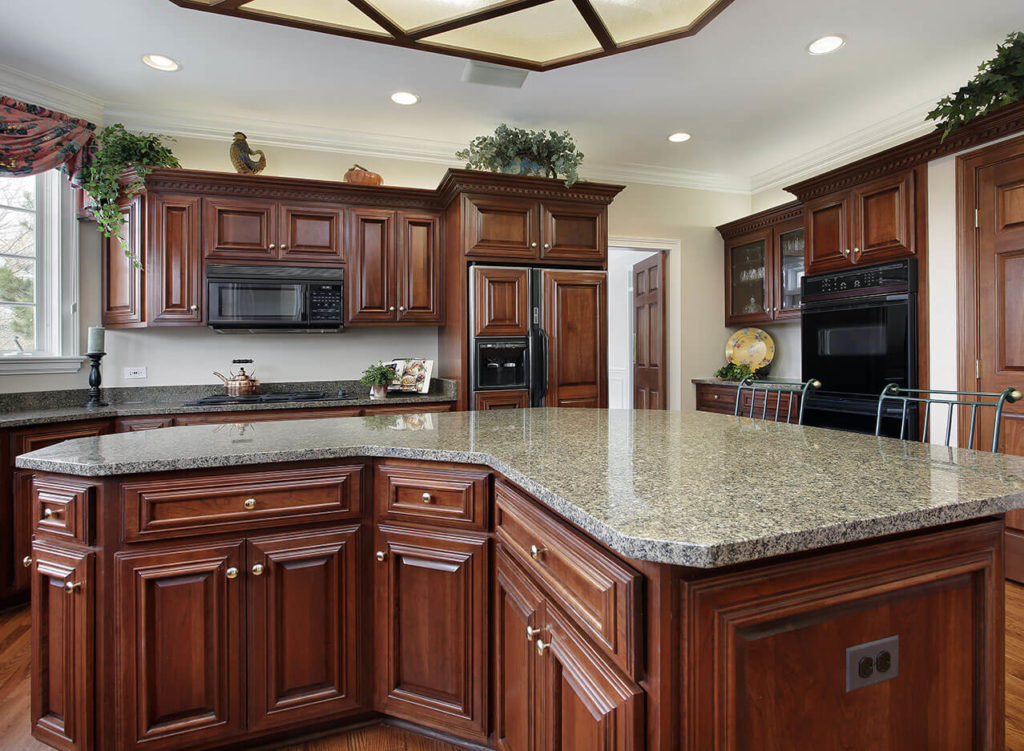
Granite has a possibility of much larger slabs. When you consider putting a countertop on a large island, granite would be a better choice. Those jumbo granite slabs will provide a seamless countertop. Quartz can not be fabricated in extremely large sizes compared to granite.
Seams on granite countertops vs quartz
Seams are known to be less visible in quartz compare to granite, especially if choosing darker colors.
Because quartz is bonded together with resin, it does not chip as much during fabrication. When you go to fit the seam together, quartz gets crispier, finer edge, which makes seams flow nicer and look smoother.
It is impossible to completely hide the seams in a granite countertop. However, a high-quality fabrication can make a difference.
Sometimes during installation, the seam in granite countertop does not turn out to be really smooth. In that case the stone professionals can top polish the seam with the right tools and materials.
You can not do the same on quartz. Most work on quartz has to be done in a professional shop with a lot of water usage.
Heat resistance
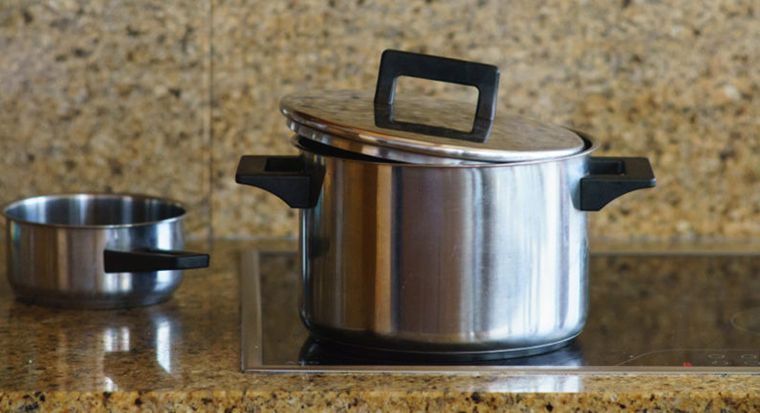
Granite is heat resistant; quartz is not. You need to be aware that you cannot put hot pots/pans/grills on quartz countertops. Excessive heat will stain or crack quartz.
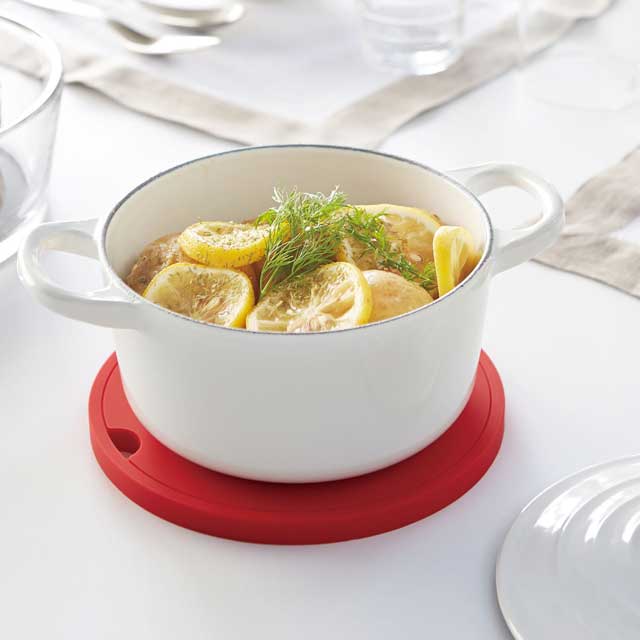
Quartz countertop will be damaged by a hot pot. The color would change deep within and it might not be repaired. Use heating pads on quartz countertops.
Repair of granite countertops vs quartz
Both quartz and granite countertops are extremely strong stones. However, quartz countertops have the extra benefit of being more flexible making them less likely to chip or crack compared to granite.
However, it easier to repair chips and cracks on a granite.
Fading of quartz vs granite
Granite countertops do not fade. It is an incredibly old stone. Quartz, on the other hand, can fade over time when exposed to direct sunlight.
If portion of your countertop receives strong UV rays from the sun as another portion does not, over time you might see a discoloration.
When choosing a countertop for outdoors, we recommend granite vs quartz, because it is simply indestructible by sunlight.
Stains on granite countertops vs quartz
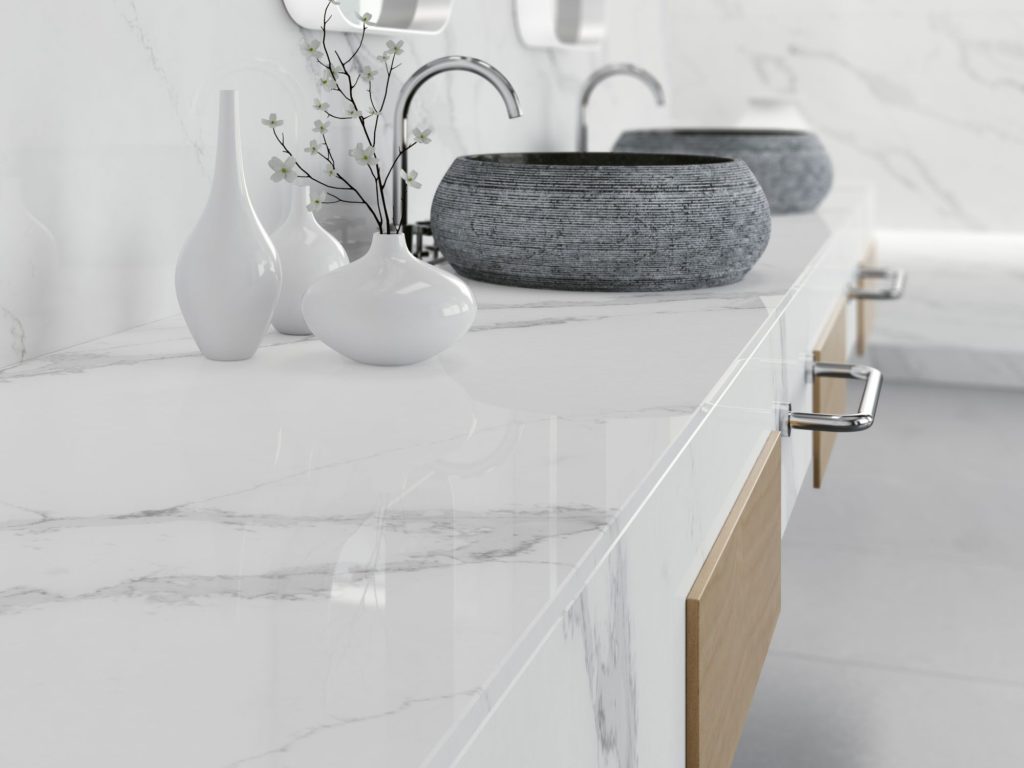
Quartz is stain-resistant, another great benefit this product has. If granite is not sealed correctly or left unsealed, it might result in absorbing oil, wine and juice which will create a stain.
We have solutions on how to remove stains from granite countertops.
Properly sealed granite will not stain.
Sealing countertops
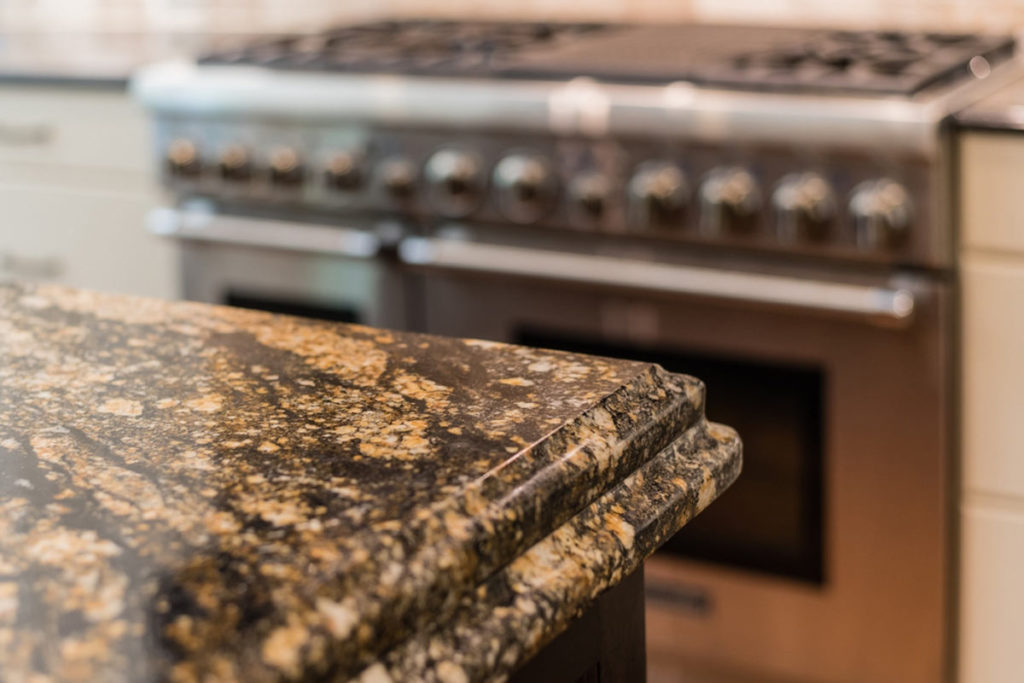
You do not need to seal quartz, which is one of the main benefits of the product. However, regular sealing of granite countertops is much necessary.
The amount of time between sealing will depend on the color, nature, and use of your countertops.
Bacteria on granite countertops vs quartz
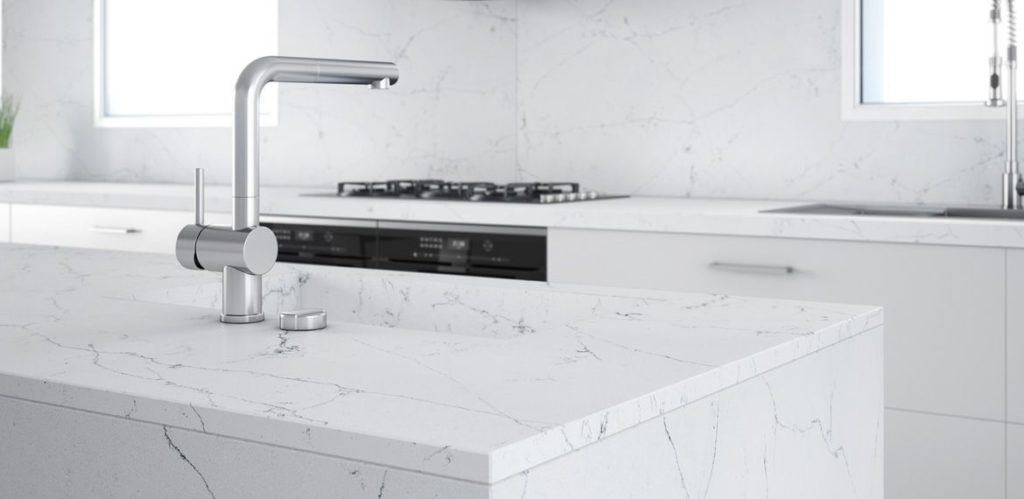
Quartz is antibacterial while granite is not. Granite has minuscule pores and is absorbent by nature. Improperly sealed granite will harbor bacteria. That is one of the important reasons why we recommend sealing granite countertops at least once a year.
CONCLUSION:
PROS
Granite
- 100% natural stone
- Heat resistant
- Does not fade
- Can be used outdoors
- Slightly easier to repair
- Each slab of granite is absolutely unique
- More traditional design (if you desire one)
- Lowest grade starts at cheaper price vs quartz
- Seams could be polished during installation
- Much larger slabs can be fabricated vs quartz
Quartz
- No sealer needed
- Antimicrobial
- Non-porous
- Smoother seams
- More design options
- More modern design (if you desire one)
- Highest grade much lower than one of granite
- Does not chip as much during fabrication
- Easier to choose design from a small sample
CONS
Granite
- Needs maintenance
- Sealing is needed yearly
- Porous, absorbent by nature
- Hard to find solid colors or more uniformed pattern
- More exotic rare kinds can run really expensive
- Improperly sealed granite will hold bacteria
- Less design options
- Chips easier than quartz
Quartz
- Man-made product
- Stains and cracks from excessive heat
- Expands and contracts from temperature changes
- Less natural beauty compared to granite
- Might fade if under direct sunlight (like outdoors)
- Can not polish seams during installation (shop only)
Granite and quartz countertops are both beautiful, extremely durable, and, if properly maintained, they last a lifetime.
We hope this blog helped you understand these stones more fully.
When choosing between the two, it comes down to what is more aesthetically pleasing to you, what highlights your lifestyle, and what fits your budget the best.
